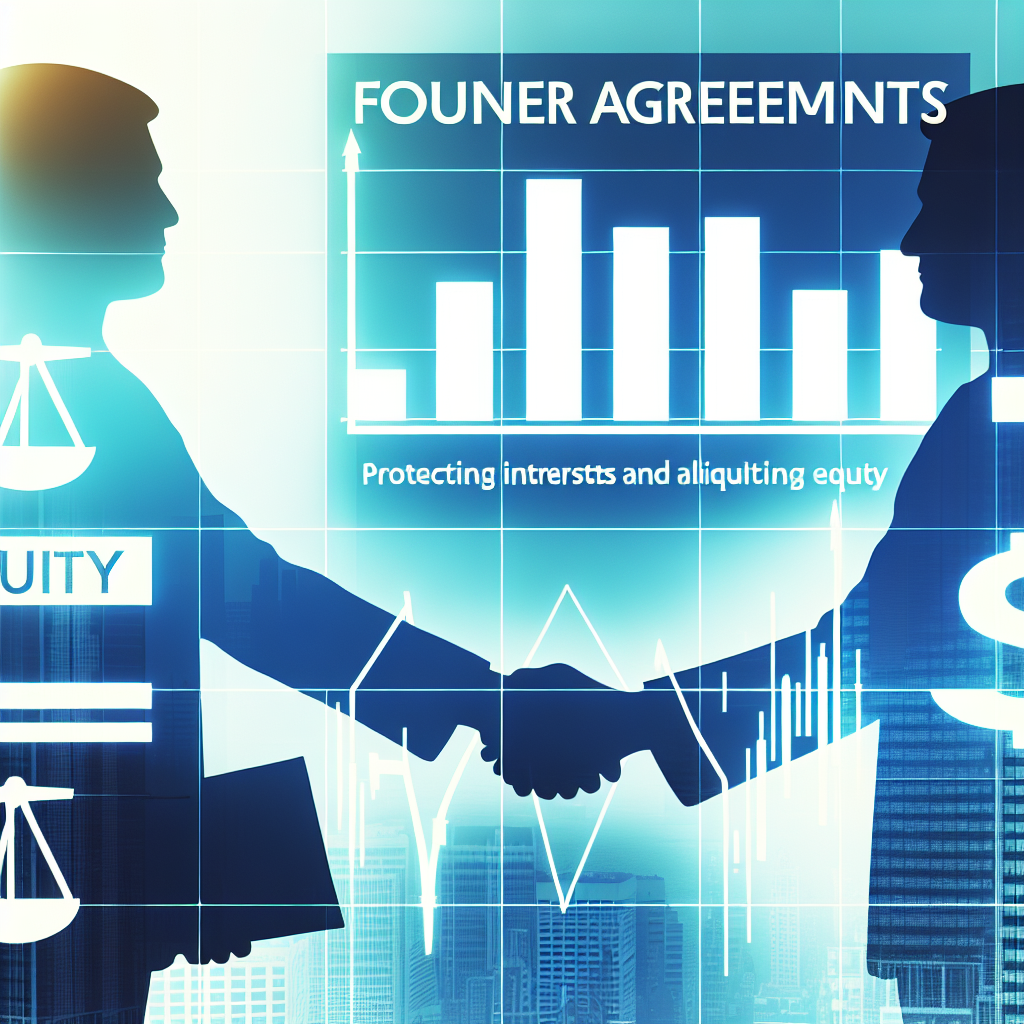
Founder Agreements: Protecting Interests and Allocating Equity
Introduction
In today’s competitive business landscape, the foundation of a startup’s success often lies in its structure and agreements. Among these, the founder agreement plays a crucial role in protecting interests and allocating equity. It sets the tone for relationships among founders while safeguarding the vision and integrity of the enterprise. In this article, we will explore the importance of founder agreements, how they allocate equity, and why they are indispensable in ensuring a smooth operational framework. At The Consultant Global, we understand the nuances of such agreements and are committed to providing tailored consultancy services to help you navigate these complexities effectively and efficiently.
The Importance of Founder Agreements
Founder agreements are more than just legal documents; they are essential tools that help define roles, responsibilities, and expectations among co-founders. Establishing a clear and comprehensive agreement can mitigate misunderstandings and disputes in the long run. Below are some key reasons why founder agreements are vital for any startup:
- Clarification of Roles: They delineate the specific roles of each founder, ensuring that everyone is aligned with the startup’s goals.
- Equity Distribution: Founder agreements help allocate equity fairly based on contributions, ensuring that team members feel valued.
- Conflict Resolution: They outline procedures for resolving disputes, allowing for effective communication and swift resolution.
- Protection of Intellectual Property: They safeguard intellectual property rights, ensuring that ideas and innovations are protected.
Key Components of a Founder Agreement
A robust founder agreement should encompass several critical elements. Each component plays a significant role in establishing a solid foundation for any startup:
1. Equity Allocation
Equity distribution is often one of the most contentious issues among founders. A well-defined equity allocation strategy helps avoid potential conflict. When deciding on equity division, consider factors such as:
- Initial contributions (capital, time, resources)
- Role and responsibility in the startup
- Future contributions, including potential risks taken
2. Vesting Schedule
A vesting schedule is crucial for retaining founders and ensuring commitment. It means that equity is earned over time, which incentivizes founders to stay with the company. This can help prevent situations where a founder leaves prematurely while holding a significant portion of equity.
3. Roles and Responsibilities
Clearly specified roles help eliminate ambiguity and promote accountability. By detailing responsibilities such as management, technical lead, marketing, and others, founders can work synergistically toward common goals.
4. Decision-Making Process
The decision-making framework should be clearly defined. This can include voting rights, what constitutes a majority decision, and how to handle critical decisions such as fundraising or selling the company.
5. Conflict Resolution Mechanism
Conflicts are inevitable but providing a structured resolution process can help resolve disputes amicably. This can include mediation, arbitration, or other methods that suit the founders.
6. Exit Strategies
Extensive discussion of exit strategies is crucial. What happens if a founder decides to leave? Establishing buyout options, terms of exit, and fair compensation can protect the remaining founders and the company.
Navigating Legal Compliance in Founder Agreements
Drafting a founder agreement should consider legal compliance requirements both in the U.S., U.K., and the GCC region, particularly Dubai. Understanding the legal landscape will ensure that your agreements hold weight and provide optimal protection.
- Understand local laws governing equity distribution and intellectual property rights.
- Ensure compliance with tax regulations linked to equity compensation.
- Consult with legal professionals familiar with international business norms.
Best Practices for Drafting Founders Agreements
Having established the critical components of a founder agreement, let’s explore some best practices for drafting it:
1. Collaborate and Communicate
Variables such as equity distribution, roles, and responsibilities need open dialogue. Include all founders in discussions and negotiations to encourage a sense of ownership.
2. Customize Your Agreement
A standard template may not apply to every startup. Tailor your agreement to reflect unique circumstances, business models, and cultural perspectives.
3. Leverage Professional Expertise
Seek legal and consultancy advice to ensure your agreement complies with relevant laws and effectively captures the essence of your startup. The Consultant Global is well-equipped to assist you, given our extensive experience and language capabilities.
4. Revisit and Revise
Your startup will evolve over time. Schedule regular reviews of your founder agreement to keep it relevant and aligned with your business trajectory.
The Role of The Consultant Global in Assisting Startups
At The Consultant Global, we pride ourselves on offering exceptional consultancy services tailored to the unique needs of startups. Our extensive experience across various industries, coupled with our understanding of multicultural environments, positions us as a valuable partner in this journey. We recognize that founder agreements are instrumental for new businesses, and our team can assist in drafting agreements that not only meet statutory requirements but also engrain the ethos and goals of your startup.
We possess fluency in multiple languages, including English, Turkish, Azerbaijani, Russian, and French, enabling us to cater to diverse clients effectively. Our commitment to excellence guarantees that you will receive valuable insights that can elevate your business strategy in the GCC and beyond.
Conclusion
In conclusion, creating a founder agreement is a vital step that no startup should overlook. It protects individual interests, allocates equity fairly, and lays a solid groundwork for future interactions among founders. By leveraging the expertise of The Consultant Global, you can ensure that your agreements are thoughtfully constructed to meet your unique needs, enhancing your path to success. With our commitment to diversity, inclusion, and excellence, we stand ready to assist you as your trusted advisor. Together, let’s navigate the path to business success!




Leave a Reply